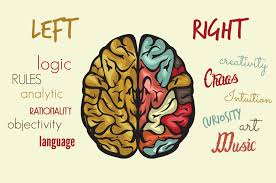Why Do We Remember Song Lyrics From 40 Years Ago, But Can’t Remember Our Paypal Password?

 Why Do We Remember Song Lyrics Easier Than Important Passwords?
Why Do We Remember Song Lyrics Easier Than Important Passwords?
This morning in the shower, I sang Joni Mitchell’s 1974 song “People’s Parties” from start to finish from memory, a song easily I first listened to more than thirty-odd years ago. Granted, it’s a relatively short song (I say this because with the potential of another California drought looming, I don’t want to end up warbling “Stairway to Heaven” while the crops in the field wither and die), but I sang the entire song from memory while I can’t even remember the numbers on my current license plate.
“Photo beauty gets attention – then her eye paints running down.
She’s got a rose in her teeth and a lampshade crown”.

I got to wondering why we are able to remember obscure (albeit still relevant and bitingly satirical) while many day to day certainly more important and data and information seems unremarkably easy to just disappear from my head. Why does this happen? To answer this question, we’re going to have look inside of your brain, or what’s left of it.
Memory itself is composed of three storage systems. They’re spread across three networks and each has a different responsibility in the memory making process. These three networks are encoding, long-term memory, and recall. Encoding is the first step in creating memories. The process of laying down memories begins with attention, where a memorable event causes neurons to be stimulated more frequently.
Things like emotions tend to increase the attention. The emotional side of an event is processed on an unconscious pathway in the brain. There are a total of four types of encoding: acoustic, visual, tactile, and semantic. Encoding for short-term memory storage heavily relies on acoustic encoding (the kind you used to hear on, say “MTV Unplugged” . Long-term memory encoding relies mostly, but not exclusively, on semantic encoding.
Because human memory is fundamentally associative, new pieces of information are more easy to remember when associated with knowledge we already have anchored in memory. The next network is long-term memory, which was previously mentioned. There are two kinds of memories storages within this warehouse: episodic memory and semantic memory. When important personal events, and the feelings that are associated with these kinds of events, take place, they are stored in the episodic memory system.
Semantic memory is the long-term warehouse that holds silly facts we can recall when asked. For example: when did Christopher Columbus discover America? I’m sure you’re screaming the rhyme we’re all taught in grade school: “In 1492, Columbus sailed the ocean blue!” This system is responsible for storing school-related learning, and the chart position peak of all the songs from “Saturday NightFever” (essentially all number one, but I digress). that we’ve been able to memorize.
The last network is the recall network, or the recall system. This network is responsible for finding the information stored within your brain. When I asked you about good ol’ Christopher, the answer most like popped in your head a second or two after you read the question, or maybe the famous grade school rhyme popped in your head instead of just the date. The recall system activates our higher-order thinking skills in order to help us find the answer.
Why can you remember lyrics over names of second cousins, bank account numbers, passwords and obviously way more salient info (well, maybe not second cousins)? The truth is we are more interested in those song lyrics than the password we once assigned to our myspace account. Music is written to help people form connections with the different pieces. When you hear a song that fits perfectly with an emotion you may be feeling, often times your brain will store that information and recall it when in a similar situation later on. Is the music industry brainwashing us? Not really, our mind is just a very interesting part of what makes us who we are.


Pingback: Is Melody or Harmony More Important? - Indie Song Makers